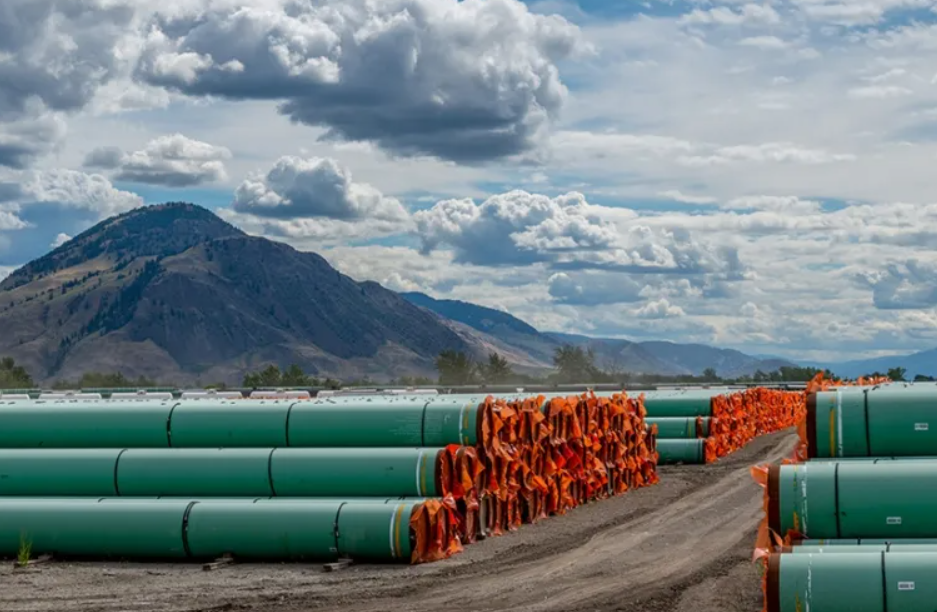The Trans Mountain oil pipeline expansion project, a Canadian government-owned initiative, has once again encountered a roadblock as the Canada Energy Regulator (CER) issued an order to halt work in a wetland area near Abbotsford, British Columbia. This decision follows the discovery of several environmental and safety-related non-compliances during an inspection. The project, which aims to nearly triple the capacity of the existing pipeline, has already faced years of regulatory delays, environmental opposition, and significant cost overruns.
The CER’s order to halt work on the Trans Mountain oil pipeline expansion project highlights a series of non-compliances that have raised concerns among environmentalists and safety regulators. Some of these non-compliances include insufficient fencing to protect amphibians and unapproved vegetation clearing. Such issues pose potential threats to the surrounding ecosystem and the safety of the workforce involved in the project. As a result, the CER has ordered Trans Mountain to rectify these non-compliances, investigate their root causes, and conduct a safety inspection to ensure the site’s suitability for work.
This is not the first time that the project has faced environmental setbacks. In 2021, construction had to be temporarily halted to protect hummingbird nests along a one-kilometer section of the pipeline’s route. These recurring environmental concerns raise questions about the project’s commitment to mitigating its impact on the environment.
Aside from environmental challenges, the Trans Mountain expansion project has been significantly affected by budget overruns. The original estimated cost of the project, when purchased by the Canadian government in 2018, was C$7.4 billion. However, this number has more than quadrupled, reaching C$30.9 billion ($22.49 billion) partly due to construction delays.
The steadily increasing costs have raised concerns about the efficiency of the project’s management and the overall financial implications for taxpayers. Prime Minister Justin Trudeau’s Liberal government purchased the pipeline in 2018 with the intention of ensuring the expansion’s completion, but the financial challenges have made the investment increasingly contentious.
Despite these challenges, Trans Mountain Corp, the government-owned corporation overseeing the expansion project, has reported that the work on the oil pipeline is more than 95% complete. This progress suggests that, despite the hurdles, the project is inching closer to its completion.
The Trans Mountain expansion project, when operational, is set to increase the pipeline’s capacity to 590,000 barrels per day, opening up access to new markets in Asia and the U.S. West Coast for Canadian crude. The project’s success is of significant national interest, both in terms of economic growth and ensuring access to crucial export markets.
The Trans Mountain oil pipeline expansion project continues to face challenges in its quest for completion. The recent order from the Canada Energy Regulator to halt work due to environmental and safety non-compliances adds to the project’s growing list of setbacks. Additionally, the substantial cost overruns have raised financial concerns.
While Trans Mountain Corp remains committed to addressing these issues and bringing the project to fruition, the journey to completion is fraught with uncertainties. The fate of the Trans Mountain expansion project will not only impact the Canadian oil industry but will also have environmental and financial ramifications that demand close attention and scrutiny in the years ahead.
(Source: Ismail Shakil | Nia Williams | Leslie Adler | Diane Craft | Aurora Ellis | Reuters)









